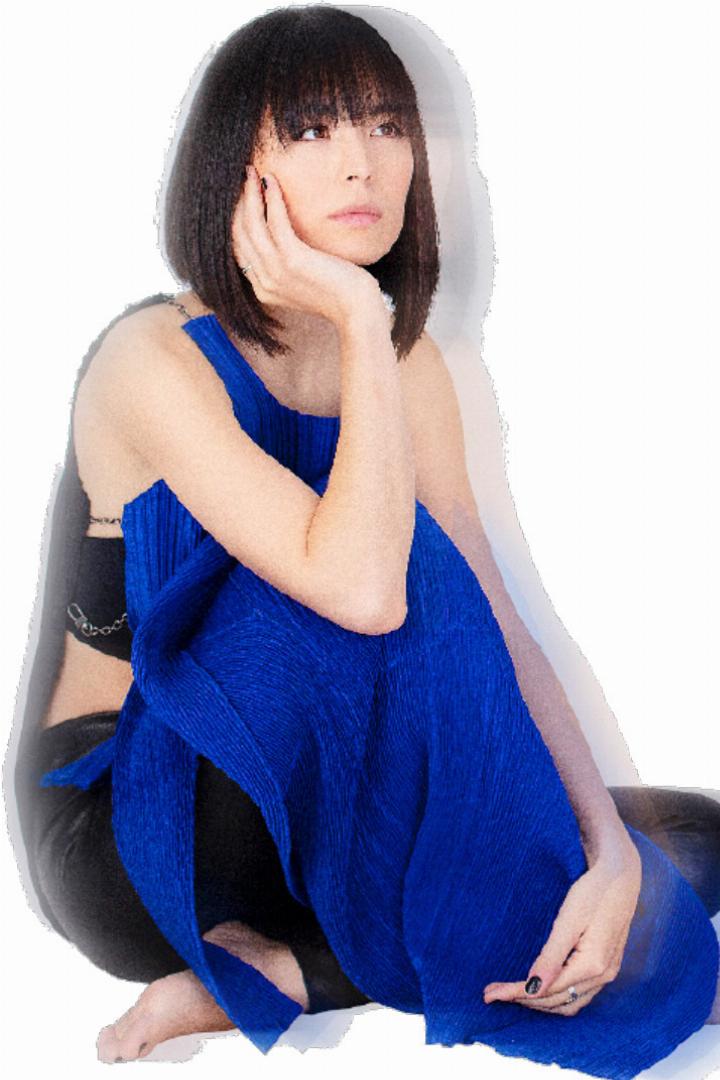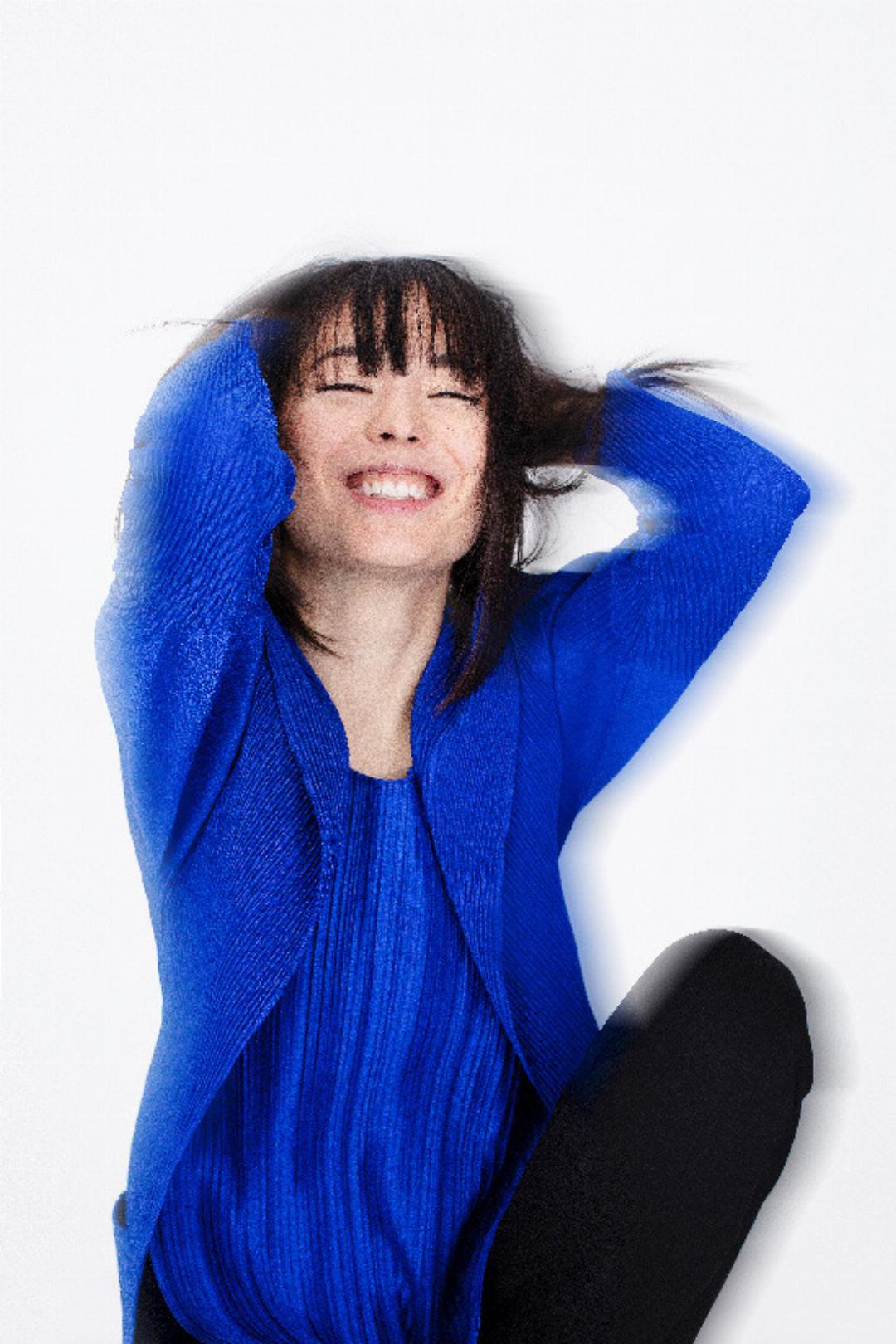Echoes of life - Interview with Alice Sara Ott
12.08.2023 Arts & Culture, Menuhin Festival & Academy, Events, ProfileTwo years after its planned premiere in Gstaad, pianist Alice Sara Ott finally brings her ‘Echoes of Life’ project to the Gstaad Menuhin Festival. GstaadLife spoke with Alice ahead of her concert in the Festival Tent on Sunday 13 August.
Was it ...
Two years after its planned premiere in Gstaad, pianist Alice Sara Ott finally brings her ‘Echoes of Life’ project to the Gstaad Menuhin Festival. GstaadLife spoke with Alice ahead of her concert in the Festival Tent on Sunday 13 August.
Was it always clear you would become a professional musician?
I started piano lessons at the age of four and got really hooked on the instrument. In fact my mother tells me she often had to pull me away because she thought it wasn’t healthy to spend so much time practicing! So it was obvious from early on that the piano would form a major part in my life.
I had very inspirational teachers and looking back I see they taught me in such a way that got me motivated. I started taking part in youth competitions from about the age of seven. This gave me a great opportunity to prepare programmes to play in front of people, but it was always more about the process than the winning.
By the age of 17, I already had a concert schedule in place. At that time I was eligible to start taking part in big international competitions, but my teacher and I decided I would continue to focus on preparing programmes for concerts instead. Then when I was 19, Deutsche Grammophon approached me about a recording deal and that was definitely an important step in my career.
But there wasn’t really any point where I had to consider whether I would do this professionally or not. I think it’s because, like an athlete, it all started so early for me. I was also in the lucky position of never being faced with the question of whether I could make a living out of music because it all just developed naturally.
Can you please tell me about the pieces you have chosen for your concert at the Gstaad Menuhin festival and how you feel about performing them?
‘Echoes of Life’ is based on my album of the same name that came out in 2021. It’s a musical juxtaposition of the 24 preludes of Chopin, interspersed with contemporary compositions. It’s called ‘Echoes of Life’ because our lives are made up of little moments, like fingerprints, that are all connected to create something bigger.
It was an exciting process because it made me realise that whether we perceive music as old, elite and exclusive or as time-relevant, modern and inclusive, depends so much on the context. I find it so interesting that when you listen to all these pieces together, it’s actually the contemporary works that enhance and highlight how modern and timeless Chopin is by making us listen to his music with different ears and from different angles.
While I was thinking about how to translate all the connections and nuances of this project to a live audience without interrupting the musical flow, I was introduced to Hakan Demirel, an architect in Istanbul. He created a digital world in a video that is projected on a screen behind me. But it’s not like a normal film - there are no people in it, there’s no obvious storyline. Nor does it exist in the real world. It’s a series of architectural spaces that reflect the music and invite audience members to find their own echoes within those spaces and within the music. It therefore becomes a kind of interactive journey.
This project is also a reflection on life itself. I put it together during the peak of the pandemic in a very isolated bubble when I had a lot of time to reflect on things. Every piece of music I picked was a personal choice and interpreted from a personal angle, but when I started to play in front of audiences the experience began to evolve.
I always encourage audiences to give me feedback, but when they began to share very personal stories of how they related to the music and the visual experience, it changed the way I saw the project. Although it started in a very personal space, when I’m on stage I now think about the people who attend the concerts. It’s their stories that echo within the hall while I play this programme, not mine. This is so important to me because it makes the audience members an active part of this whole journey. I appreciate this because I believe music can only exist in its fullest form when we come together, share it and feel like we’re a big community. That’s a very nice thing for me to see and definitely what I enjoy most about the whole journey.
How do you compare the experience of recording in a studio versus performing live for an audience?
I have a difficult relationship with recordings. I always somehow find myself aiming for perfection that doesn’t actually exist because music is born in the moment, it lives in the moment and takes different shapes depending on the acoustics, the instrument and so many other factors.
For me it’s all about connecting through music and even though I love listening to recordings, nothing replaces a live concert. That’s where I get my energy from. I thrive so much on this connection with the audience; it’s such an essential part of my life. Every time I’m curious how the journey is going to turn out.
How did you develop your identity as an artist and how do you see the future for the classical music industry?
Artistically I’m very satisfied and really identify with what I do, but it’s taken time to reach this point. As a young musician you study the music and the history of the music, but what I really missed in my education was answering questions like what does it mean to be a classical artist in the time we live in? How do I want to be seen as an artist? What do I want to achieve? How do I want to communicate and reach the audience?
It’s not like we get trained in this kind of thing and my early twenties was a time of complex personal struggle while I explored the answers for myself. This resulted in me taking over more control so that I’m always happy with every project. There are always challenges to solve and with every new idea there are ten or 20 new problems, but I’m very satisfied with what I create artistically.
Of course time changes things and we can’t detach ourselves from what’s happening in the moment because it’s the people right now we want to reach. But I’m very optimistic about the future because I see more of the younger generation asking these questions about their artistic identity.
When a young musician creates their social media profile, these are the inevitable questions they have to ask themselves. And that’s the only space where they actually have full control over how they present and articulate themselves. This is such an important process and although there are downsides to social media, this is one of its benefits. I’m not saying this is the only way, but I think we need this versatility in the arts world.
When musicians decide to take the very traditional route that’s also great, but I think we need tolerance for all different paths. The classical music industry I grew up in was very conservative and I really like how there is now more space for people who think differently.
What’s it like prepare for an event like the Gstaad Menuhin Festival?
We were actually supposed to premiere the ‘Echoes of Life’ project here two years ago, but that wasn’t possible because of the pandemic. So there’s a special meaning to finally bring it to Gstaad.
This project involves more preparation than for a usual recital. I’m travelling with a technician who’s in charge of working with local crews to set up all the lighting and video projection. We then have to rehearse not just the music but the video cues and all the lighting settings because it’s different for each hall. This can require several hours of rehearsal and makes for a long day. It’s very exhausting and sometimes I think I’ll never create such a complex project again. But then I see the audience’s reaction, see what it gives them and what they give us in return and know it’s worth all the effort.
Finally what’s it like to be back in Gstaad?
It’s nice to be in Gstaad because you have this beautiful landscape and I really love mountains. I’m more a mountains than a sea person because when you see mountains, you’re reminded how small you are as a human being and also how much damage we can do to nature. Gstaad is definitely a place that gives me a lot of inspiration.
Unfortunately I won’t get much time here but I’m very much looking forward to coming back to the festival and to finally performing ‘Echoes of Life’ – the programme we were supposed to premiere here two years ago.
ANNA CHARLES





